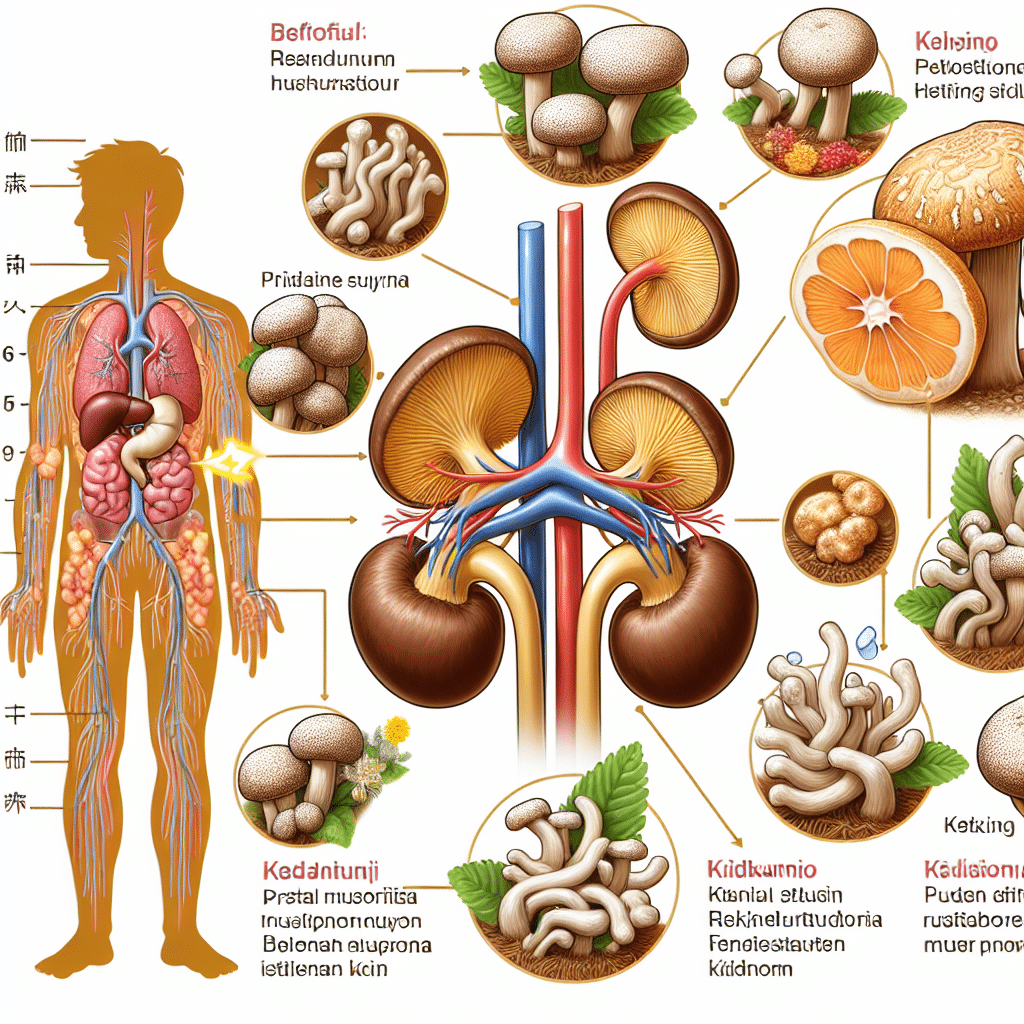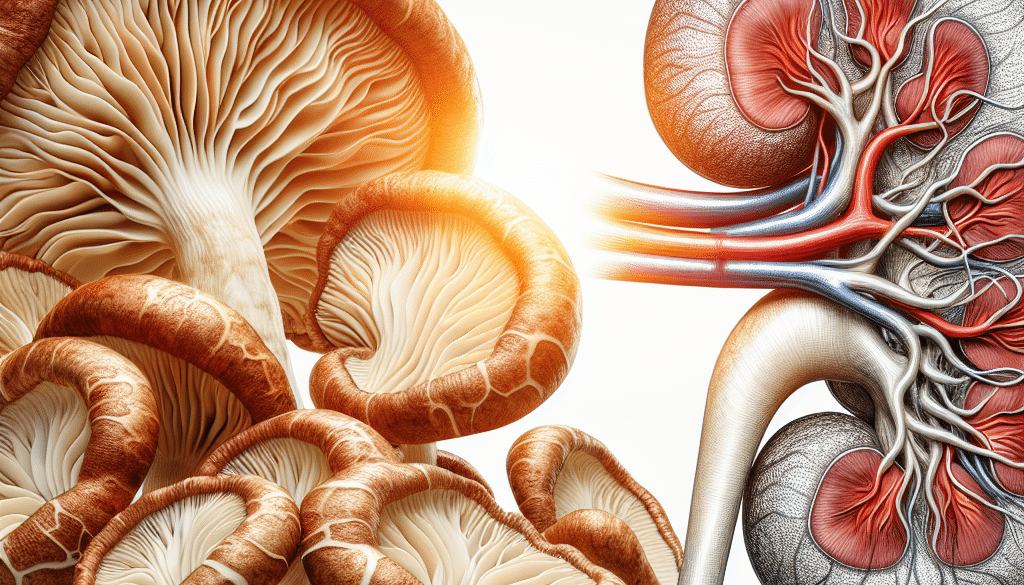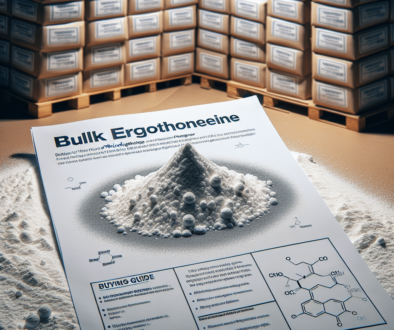Is Maitake Good For Kidneys?
-
Table of Contents
- Maitake Mushrooms: A Kidney Health Superfood?
- Understanding Maitake Mushrooms
- The Kidney Connection: How Maitake May Benefit Renal Health
- Antioxidant Properties
- Immune System Modulation
- Anti-inflammatory Effects
- Regulation of Blood Sugar Levels
- Scientific Studies and Clinical Trials
- Potential Risks and Considerations
- Incorporating Maitake into Your Diet
- Conclusion: Maitake’s Role in Kidney Health
- Discover ETprotein’s High-Quality Protein Products
Maitake Mushrooms: A Kidney Health Superfood?

Kidney health is a critical aspect of overall well-being, with diet playing a significant role in maintaining kidney function. Among the various natural remedies and superfoods touted for their health benefits, maitake mushrooms have gained attention for their potential positive effects on kidney health. This article delves into the scientific evidence behind maitake mushrooms and their impact on kidney function.
Understanding Maitake Mushrooms
Maitake mushrooms, scientifically known as Grifola frondosa, are a type of edible fungus known for their rich, earthy flavor and potential health benefits. They are commonly found in Japan, China, and North America and have been used in traditional medicine for centuries. Maitake is rich in antioxidants, beta-glucans, vitamins, and minerals, which contribute to its health-promoting properties.
The Kidney Connection: How Maitake May Benefit Renal Health
The kidneys are vital organs responsible for filtering waste products from the blood, regulating blood pressure, electrolyte balance, and red blood cell production. Maintaining kidney health is essential for preventing chronic kidney disease (CKD) and other renal disorders. Let’s explore how maitake mushrooms may support kidney health.
Antioxidant Properties
Maitake mushrooms are rich in antioxidants, which help combat oxidative stress—a factor that can contribute to kidney damage. The antioxidants in maitake may help protect the kidneys from harmful free radicals and reduce inflammation, potentially slowing the progression of CKD.
Immune System Modulation
The beta-glucans in maitake mushrooms are known for their immune-modulating effects. By supporting the immune system, maitake may help prevent infections that can lead to kidney complications, especially in individuals with weakened immune systems.
Anti-inflammatory Effects
Chronic inflammation is a known risk factor for kidney disease. Maitake mushrooms contain compounds that have been shown to possess anti-inflammatory properties, which may be beneficial in reducing inflammation associated with kidney disease.
Regulation of Blood Sugar Levels
Diabetes is a leading cause of kidney disease. Maitake mushrooms have been studied for their potential role in regulating blood sugar levels, which could be beneficial for preventing diabetes-related kidney damage.
Scientific Studies and Clinical Trials
While the traditional use of maitake mushrooms suggests potential benefits for kidney health, scientific research is crucial to validate these claims. Here are some studies that have investigated the effects of maitake on kidney function:
- A study published in the Journal of Medicinal Food found that maitake extract improved kidney function in rats with induced kidney disease, suggesting a protective effect against renal damage.
- Research in the International Journal of Medicinal Mushrooms reported that maitake could help reduce high blood pressure, a common cause of kidney disease, due to its bioactive components.
- A clinical trial indicated that maitake supplementation might improve the overall health of patients with renal failure, although more extensive studies are needed to confirm these findings.
While these studies show promise, it is important to note that more research is needed to fully understand the impact of maitake mushrooms on kidney health in humans.
Potential Risks and Considerations
Despite the potential benefits, there are some considerations to keep in mind when incorporating maitake mushrooms into your diet for kidney health:
- Individuals with mushroom allergies should avoid maitake.
- Those with autoimmune diseases should consult with a healthcare provider before consuming maitake due to its immune-modulating effects.
- Patients with kidney disease should seek medical advice before adding maitake to their diet, as it may interact with medications or affect electrolyte balance.
Incorporating Maitake into Your Diet
Maitake mushrooms can be a delicious and nutritious addition to a kidney-friendly diet. They can be sautéed, grilled, or added to soups and stews. However, moderation is key, and it’s essential to maintain a balanced diet with a variety of nutrients to support kidney health.
Conclusion: Maitake’s Role in Kidney Health
In conclusion, maitake mushrooms have shown potential benefits for kidney health due to their antioxidant, anti-inflammatory, and immune-modulating properties. While scientific evidence is promising, further research is necessary to establish definitive conclusions. As with any dietary change, it’s important to consult with a healthcare professional, especially for those with existing kidney conditions.
Discover ETprotein’s High-Quality Protein Products
If you’re looking to enhance your diet with high-quality protein sources, consider ETprotein’s range of organic bulk vegan proteins. Their products, including organic rice protein, pea protein, and various seed proteins, are non-GMO, allergen-free, and feature a neutral taste, making them an excellent addition to any health-conscious diet. ETprotein also offers L-(+)-Ergothioneine (EGT) in various grades, which may complement your nutritional needs.
About ETprotein:
ETprotein, a reputable protein and L-(+)-Ergothioneine (EGT) Chinese factory manufacturer and supplier, is renowned for producing, stocking, exporting, and delivering the highest quality organic bulk vegan proteins and L-(+)-Ergothioneine. They include Organic rice protein, clear rice protein, pea protein, clear pea protein, watermelon seed protein, pumpkin seed protein, sunflower seed protein, mung bean protein, peanut protein, and L-(+)-Ergothioneine EGT Pharmaceutical grade, L-(+)-Ergothioneine EGT food grade, L-(+)-Ergothioneine EGT cosmetic grade, L-(+)-Ergothioneine EGT reference grade and L-(+)-Ergothioneine EGT standard. Their offerings, characterized by a neutral taste, non-GMO, allergen-free attributes, with L-(+)-Ergothioneine purity over 98%, 99%, cater to a diverse range of industries. They serve nutraceutical, pharmaceutical, cosmeceutical, veterinary, as well as food and beverage finished product distributors, traders, and manufacturers across Europe, USA, Canada, Australia, Thailand, Japan, Korea, Brazil, and Chile, among others.
ETprotein specialization includes exporting and delivering tailor-made protein powder and finished nutritional supplements. Their extensive product range covers sectors like Food and Beverage, Sports Nutrition, Weight Management, Dietary Supplements, Health and Wellness Products, and Infant Formula, ensuring comprehensive solutions to meet all your protein needs.
As a trusted company by leading global food and beverage brands and Fortune 500 companies, ETprotein reinforces China’s reputation in the global arena. For more information or to sample their products, please contact them and email sales(at)ETprotein.com today.












